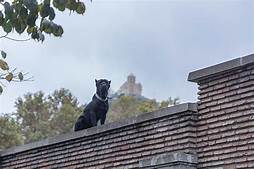How to Get an Exotic Pet License in Georgia
Exotic pets can make for fascinating and unique companions. However, before you can bring one of these animals into your home, you need to make sure you have the proper license. In Georgia, the requirements for obtaining an exotic pet license vary depending on the type of animal you want to own. This article will provide you with a step-by-step guide on how to get an exotic pet license in Georgia.

What Animals Are Considered Exotic Pets in Georgia?
The following animals are considered exotic pets in Georgia:
- Alligators and crocodiles
- Bears
- Big cats (including lions, tigers, leopards, and jaguars)
- Elephants
- Giraffes
- Hippopotamus
- Monkeys
- Rhinoceroses
- Venomous snakes
Step 1: Check Local Ordinances
Before you apply for an exotic pet license, you need to check the local ordinances in your city or county. Some cities and counties have additional requirements for owning exotic pets, so it's important to make sure you're in compliance with all applicable laws.
Step 2: Obtain a Premises Permit
The first step to getting an exotic pet license is to obtain a premises permit. This permit allows you to keep exotic animals on your property. To apply for a premises permit, you will need to submit the following:
- A completed application form
- A copy of your driver's license or other government-issued ID
- A description of the exotic animals you plan to keep
- A map of your property showing the location of the enclosures where the animals will be kept
- Proof of financial responsibility (such as a bond or insurance policy)
Step 3: Pass an Inspection
Once you have submitted your application, the Georgia Department of Natural Resources (DNR) will conduct an inspection of your property. The inspector will look for the following:
- Secure enclosures that are large enough for the animals
- Proper food and water supplies
- A plan for veterinary care
- A plan for dealing with emergencies
Step 4: Obtain an Exotic Pet License
If you pass the inspection, the DNR will issue you an exotic pet license. The license will be valid for one year. To renew your license, you will need to submit a renewal application and pay a renewal fee.
Step 5: Comply with Ongoing Requirements
Once you have an exotic pet license, you are required to comply with the following ongoing requirements:
- Keep your exotic animals in secure enclosures.
- Provide your animals with proper food, water, and veterinary care.
- Have a plan for dealing with emergencies.
- Report any changes to your exotic animal inventory to the DNR within 10 days.
- Allow the DNR to inspect your property and animals at any time.
Conclusion
Getting an exotic pet license in Georgia is a complex process, but it is necessary if you want to own one of these animals legally. By following the steps outlined in this article, you can increase your chances of successfully obtaining an exotic pet license.
Declaration: All article resources on this website, unless otherwise specified or labeled, are collected from online resources. If the content on this website infringes on the legitimate rights and interests of the original author, you can contact this website to delete it.



